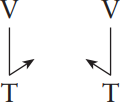


 Grammar
Grammar
 Tenses
Tenses
 Present
Present
 Past
Past
 Future
Future
 Parts Of Speech
Parts Of Speech
 Nouns
Nouns
 Verbs
Verbs
 Adverbs
Adverbs
 Adjectives
Adjectives
 Pronouns
Pronouns
 Pre Position
Pre Position
 Preposition by function
Preposition by function 
 Preposition by construction
Preposition by construction
 Conjunctions
Conjunctions
 Interjections
Interjections
 Grammar Rules
Grammar Rules
 Linguistics
Linguistics
 Semantics
Semantics
 Pragmatics
Pragmatics
 Reading Comprehension
Reading Comprehension|
Read More
Date: 2023-11-09
Date: 28-6-2022
Date: 7-6-2022
|
spreading (n.)
A term in the classification of lip position in PHONETICS, referring to the visual appearance of the lips when they are held fairly close together and stretched sideways, as in a slightly open smile. Spread lips are noticeable in CLOSE VOWELS, as in the [i] of see, and contrast with NEUTRAL, OPEN and ROUNDED lip positions. A similar use of the term is found in relation to GLOTTAL aperture, which may be described as varying between spread (wide) and CONSTRICTED (narrow). Sounds which are [+spread glottis] are produced with audible glottal FRICTION, as in English aspirated STOPS.
In some models of NON-LINEAR PHONOLOGY, spreading refers to the ASSOCIATION (or LINKING) of a FEATURE or NODE belonging to one SEGMENT with an ADJACENT segment; the disassociation of a feature or node from a segment is called delinking. The notion is of particular importance in the study of ASSIMILATION, where the effect of spreading produces an output REPRESENTATION with multilinked nodes, and DISSIMILATION, where a feature or node is delinked from a segment, and the orphaned node is later deleted. AUTOSEGMENTAL spreading also accounts for COMPENSATORY LENGTHENING in a CV framework.
In AUTOSEGMENTAL PHONOLOGY, spreading refers to a type of RULE which extends the association of a TONE in a given direction, e.g. a high tone associated with an initial VOWEL comes to be associated with the following vowel(s). Spreading is indicated by an arrow in the autosegmental rule, pointing to the right for unbounded rightward spreading, and to the left for unbounded leftward spreading:

|
|
|
|
دراسة تحدد أفضل 4 وجبات صحية.. وأخطرها
|
|
|
|
|
|
|
جامعة الكفيل تحتفي بذكرى ولادة الإمام محمد الجواد (عليه السلام)
|
|
|